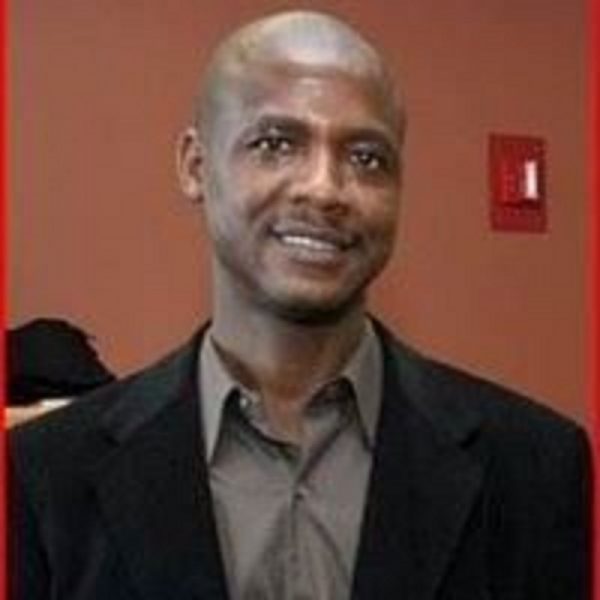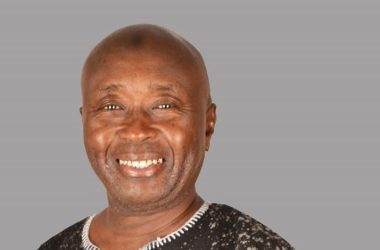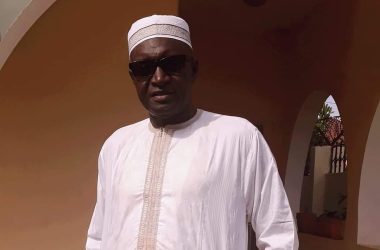
Active citizens are not those who complain and whine about a problem but those who take a firm stand. An active citizen (otherwise called an activist) sees a problem and takes a step to do something about it. Often too reform-oriented, current activism is incapable of midwifing radical transformation.
The overarching research question is how the Gambian activists and civil society groups secure freedom of expression and speech, judicial independence and accountability vis-a-vis presidential or executive imperialism, impunity, and legislative tyranny and overreach. How do Gambian activists stop “political justice,” which activists should contextualize to stop the government using criminal justice for political purposes?
Social media is a world on its own. Facebook and WhatsApp are especially remodelling our social constructs. Beyond the keyboard, we have our social identity handed to us at birth and reconfirmed throughout our lives in everyday encounters. On the contrary, social media enables a second act, and it grants us the enormously unspoken privilege to decree what is okay. To present an otherness. To activate a new and distinct persona. Suddenly we can assemble the face we present to the world, what the world will accept, and what it will shun.
In some cases, the power to exhibit a hidden otherness that is other peoples’ reality. Most importantly, we can influence and extend the boundaries of other people’s existence. That is why those who value their name, their reputation must deploy the advisory postures of caution, patience, and humility.
Today’s activism is only mildly disruptive, fragmented, and addresses symptoms, not systems. Its aims are short-term and do not engage the masses—no coherent and persuasive alternative visions. Activists are busy petitioning the same oppressive powers they purport to be fighting. Citizen participation and active citizens involved in a revolution can only end systemic oppression of tyranny, from torture, from discrimination and the fear of tyranny.
Where were the activist with Yahya Jammeh’s on “False news and sedition law” – and the whole world condemned it and the Gambia Press Union and its partners in the media fraternity? Yahya Jammeh was chased out, and the first doyen of journalist Demba Ali Jawo became modern Gambia’s first Information Minister. He left and left the “False news” law intact.
Human Rights Lawyer Abubabacarr Baa Tambadou became modern Gambia’s first Attorney General, and the Minister of Justice did not do much to repeal the draconian law. The Gambia Press Union challenged the Sedition law and False news laws, and Attorney General Tambadou has conceded on the unconstitutionality of libel, criminal defamation, and sedition. However, he maintained false news places “reasonable restriction necessary in a democracy.”
The Attorney General and State argued that “The freedom of speech is subjected to reasonable restrictions as may be necessary for a democratic society,” He told the Supreme Court panel of judges that “the nature of the false publication and false news is such that it can pose a threat to national security and public interest.” The State finally submitted that the particular section 181 (1) (a) of the Criminal Code is not unconstitutional, as suggested by the Gambia Press Union lawyer, barrister Hawa Sisay Sabally.
Attorney General Baa Tambadou worked hard to give the Gambia a new homegrown Constitution (and even a repeal of the law that banned Skin Bleaching, going through the National Assembly chambers). Baa Tambadou resigned after three years six months and retained the “False news” law untouched.
Another journalist and victim of President Yahya Jammeh’s regime, Ebrima Sillah, became a successor Information Minister to Demba Ali Jawo who was removed some two years ago. The “False Information and false news law remain untouched.”
The same Yahya Jammeh False Information and false news law had bitten Madi Jobarteh, an activist and Westminster Foundation for Democracy (WFD) representative in the Gambia as its first victim of the Barrow era, and The Gambia Press Union become petrified again. How can the Gambia’s civil society groups and activists allow the False Publication and false news law have remained on modern Gambia’s law books for more than t three years?
I genuinely fear for human rights activists and the journalist’s lives and safety. The government of President Barrow is increasingly and violently radicalizing the more susceptible members of the police. They will do his dirty work for him as they did for Yahya Jammeh to take out the “enemy” in the name of “patriotism,” and President Barrow will stand back and deny any culpability. This is very dangerous and precisely what his government wants!
Activists must demand the government do something before it is too late and innocent people incarcerated! These harmful laws are a personal affront to all who fought and died for the press’s freedom. It is an affront to decency everywhere.
However, having an authoritarian inclination is one thing. Being a competent and determined authoritarian who calculates his moves and sees reality with bright eyes without deceiving himself with his rhetoric, is another. Since they assumed cabinet position, we can see the government is almost entirely in name only. What we see is all there is to see. Cabinet Ministers’ portfolios are hollow Ministers without portfolios.
There are no principles behind their actions. There are no values beneath their statements. President Adama Barrow’s politics are gestural. His government’s thinking is symbolic. Their remarks are reactionary and contingent. They are indeed a thoroughgoing salesman that the product does not matter. Who is buying it does not matter. How they are selling it does not matter. Why they are selling it does not matter. All that matters are getting the mark to believe everything they say is true. All that matters are getting an accumulation of wealth and prestige. Now.
The wheels of justice turn slowly but grind exceedingly fine when they catch up with dictatorship and the republic of kleptomania. The important lesson here is that evidence-based advocacy may be slow and painful but ultimately succeeds in doing justice. Sustained surveillance is critical in such advocacy. Therefore, activists must develop “staying power” to ensure focus on a matter until the final day of judgment.
Those with superior intellect are precisely endowed with organic intellectual growth like what the revolutionary Paulo Freire called this SYNTHESIS; the kind of reasoning liberates the oppressed. Activists should not be limited to hailing and wailing on social media instead be ruthlessly candid, logical, and fearless in deconstructing lies, propaganda, and demagoguery in all platforms.
Why did civil society follow joined the Gambia Press Union for a joint lawsuit filed in 2015 by Gambia Press Union, but it could not proceed because the former autocratic ruler Yahya Jammeh refused to appoint judges. The laws in question include communication act 2015, a law that is considered Gambia’s most draconian media law.
Why would the National Assembly members not tell that what makes its Chambers hallowed and its members distinguished is not the redness of its ambiance or the deafness and cockiness of its termed occupants, but the correctness and worth of its work? What prevents activist work with lawmakers to repeal the draconian media laws that are inimical to freedom of expression and that of speech. Even if it were true that their motivation is selfish gain, you would imagine that their cumulative experience would have advised them to choose better, even at high risk repealing all bad laws inherited from the colonialists and previous kleptocratic governments.
Sedition, defined as incitement to violence or disorder, is a legislation meant to suppress the Gambian people’s voice and has no place in a 21st-century democracy. The Supreme Court, being the protector of the citizens’ fundamental rights, needs to declare the law unconstitutional the law of sedition. The Supreme Court itself did not apply these principles to speech and freedom of expression.
Sedition is an archaic law meant to suppress the voice of the Gambian people. That is why the Gambian law on sedition different from the English law. Despite the strict construction adopted by the Gambia government, law enforcement agencies have always used it against journalists, religious leaders, intellectuals, etc. for criticizing the President, the government, and the judiciary. Of the dictator’s government, Yahya Jammeh and the free government of Adama Barrow continue to use it for the very purpose for which the colonial government used it.





